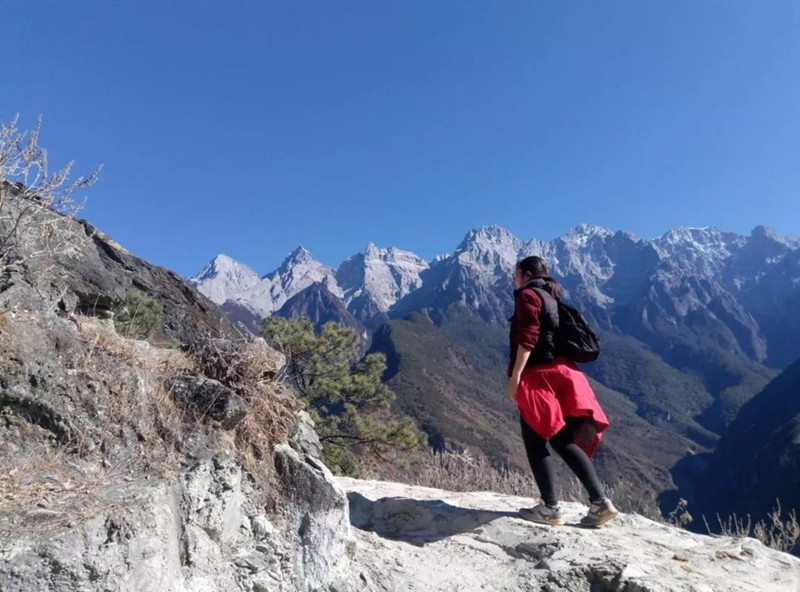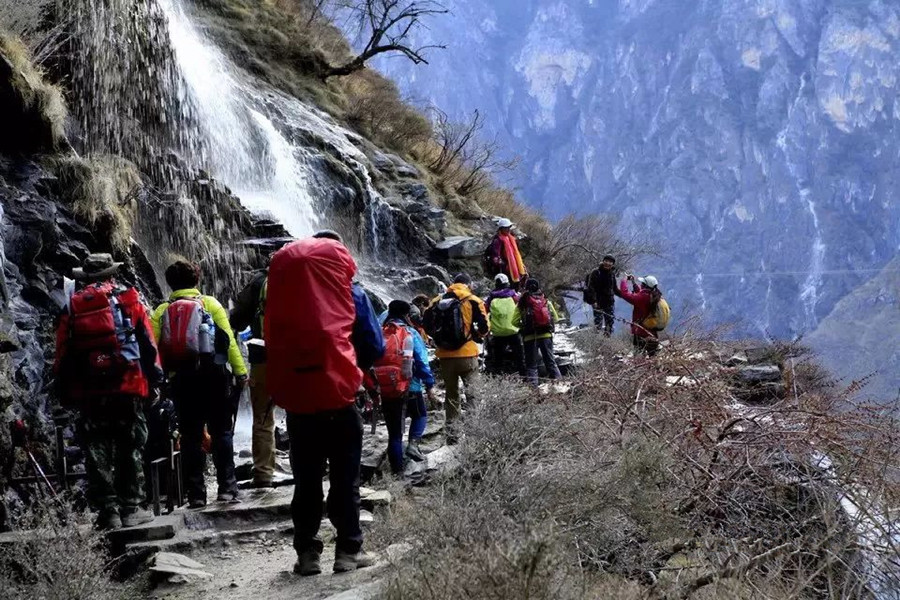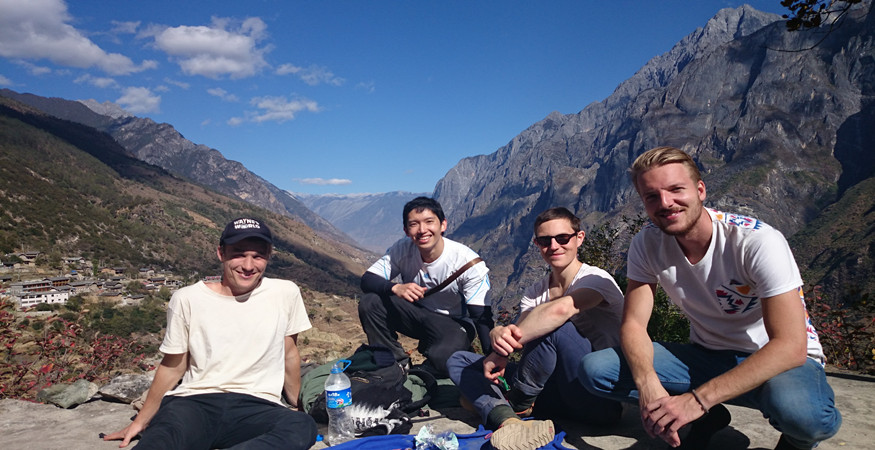
Tiger Leaping Gorge Hiking Tour for Singapore International School Students
Destination:
Tiger Leaping Gorge, Yunnan, China
Overview:
Tiger Leaping Gorge, located on the Jinsha River in Yunnan Province, is one of the world’s deepest and most spectacular gorges. The gorge is famous for its dramatic landscapes, powerful rapids, and towering mountains. This educational hiking tour provides students with hands-on learning about environmental conservation, geography, and local culture, while offering an adventurous and physically engaging outdoor experience.
Educational Goals and Objectives:
-
Nature Conservation & Environmental Awareness: Instill the importance of preserving natural habitats and understanding the impact of human activity on delicate ecosystems.
-
Geography & Geology: Explore the geological formations of one of the world’s deepest gorges, studying rock formations, tectonic shifts, and the influence of the Jinsha River in shaping the landscape.
-
Biodiversity: Study the rich biodiversity of the area, including endemic plants and animals, and the significance of Tiger Leaping Gorge in conservation efforts.
-
Teamwork & Outdoor Skills: Foster collaboration, problem-solving, and outdoor survival skills through group activities, challenges, and support during the hike.

Itinerary Design:
Day 1: Departure to Tiger Leaping Gorge
-
Morning:
-
Departure from Lijiang, with a scenic drive to Qiaotou Town, the official starting point of the Tiger Leaping Gorge trek (approx. 2 hours).
-
Briefing: Safety guidelines, hiking routes, environmental considerations, and expectations for the next few days.
-
Lunch: Traditional meal in Qiaotou.
-
Afternoon: Begin the hike from Qiaotou, following the northern high trail that offers panoramic views of the gorge.
-
Evening: Arrival at the Tea Horse Guesthouse. Relax, enjoy dinner, and prepare for the next day of hiking.
-
Day 2-3: Hiking Experience
-
Morning:
-
Breakfast at the guesthouse before setting out on the day’s trek.
-
Continue along the high trail through stunning viewpoints, passing through scenic spots like the Tea Horse Guesthouse (known for its view of the gorge) and Tina’s Guesthouse.
-
Learn about the geography of Tiger Leaping Gorge, with discussions on the tectonic movements that created the gorge, the role of the Yangtze River, and the formation of karst landscapes.
-
-
Afternoon:
-
Lunch at a guesthouse along the way, sampling local cuisine.
-
Continue hiking through the rugged terrain, descending towards Walnut Garden, a lush area known for its traditional farming practices.
-
Educational Activity: Engage in guided discussions about the local biodiversity and conservation efforts aimed at protecting endangered species like the Black-necked Crane and Snow Leopard.
-
-
Cultural Interaction:
-
Interact with Naxi and Tibetan communities, learning about their farming traditions and lifestyles.
-
Visit small villages along the trail to understand rural life, including agricultural techniques, water management systems, and community life.
-
-
Evening:
-
Stay in guesthouses along the way. Students will have the opportunity to interact with local villagers, learn about their traditions, and enjoy traditional Naxi and Tibetan meals.
-
Reflection Session: Group discussion on the cultural insights gained and how human communities adapt to living in such a challenging environment.
-
Day 4: Concluding the Trek
-
Morning:
-
Breakfast at the guesthouse.
-
Final trek to Middle Tiger Leaping Stone, an iconic spot where the river rushes through a narrow passage, creating the powerful rapids for which the gorge is named. Students will learn about the hydrological significance of the river and how it affects local ecosystems.
-
-
Educational Activity:
-
Discussion on water management and its impact on the communities living along the river.
-
Learn about sustainable tourism practices and their importance in preserving the integrity of the gorge and its surrounding habitats.
-
-
Afternoon:
-
Transfer back to Lijiang or onward travel arrangements, depending on the schedule.
-
Debriefing Session: Reflect on the physical challenges of the hike and the lessons learned about nature conservation, environmental sustainability, and the importance of preserving cultural heritage.
-
-
Evening:
-
Students have the opportunity to visit Lijiang Old Town for some light shopping or exploring before their departure.
-
Final Group Discussion: A recap of the entire journey, focusing on key takeaways about teamwork, nature, culture, and conservation.
-

Logistics and Safety:
-
Guides: Experienced local guides familiar with the terrain, weather conditions, and emergency protocols.
-
Hiking Equipment: Provide necessary hiking gear such as trekking poles, durable footwear, water bottles, rain gear, and first aid supplies.
-
Weather Monitoring: Keep a close eye on weather forecasts, particularly during the rainy season, and adjust plans accordingly for safety.
-
Safety Protocols: Ensure the presence of trained first-aid personnel. Provide a list of emergency contacts and evacuation routes.
Accommodation:
-
Guesthouses: Stay in locally run guesthouses along the hiking trail, offering basic amenities (shared rooms, simple bedding) and delicious, locally-sourced food.
-
Local Cuisine: Students will experience traditional Naxi, Tibetan, and Yi meals, helping them connect with the local culture.
Group Dynamics:
-
Teamwork: Encourage group support and cooperation by assigning tasks, such as carrying group equipment or helping with navigation.
-
Leadership Development: Give students opportunities to take on leadership roles, guiding the group, managing pace, and organizing activities.
-
Reflection Activities: Daily debrief sessions where students will reflect on their experiences, challenges, and educational insights.
Environmental Awareness:
-
Leave No Trace Principles: Teach students about sustainable practices and emphasize the importance of keeping the environment pristine. Encourage them to reduce waste, avoid disturbing wildlife, and respect local customs.
-
Conservation Efforts: Highlight local conservation initiatives in Tiger Leaping Gorge, including the work of the Tiger Leaping Gorge Nature Reserve to protect the region’s unique biodiversity.
Evaluation and Reflection:
-
Daily Reflection: Students will be encouraged to keep a journal documenting their experiences, thoughts on the environment, cultural interactions, and challenges faced.
-
Post-tour Report: After the tour, students will be asked to create presentations or reports summarizing their key learnings, including the importance of environmental conservation and cultural understanding.
Additional Considerations:
-
Pre-Departure Training: Prepare students with training on hiking techniques, packing essentials, and the physical demands of the trek.
-
Permissions and Permits: Ensure all necessary permits for hiking in Tiger Leaping Gorge are obtained well in advance.
-
Cultural Sensitivity: Educate students about the Naxi, Tibetan, and Yi cultures, emphasizing respect for local traditions, values, and customs.

This Tiger Leaping Gorge Hiking Tour for Singapore International School students combines physical activity, environmental education, and cultural immersion. By exploring one of the world’s most stunning natural landscapes, students will gain an understanding of ecological conservation, geographical formations, and local cultures. This tour fosters not only adventure but also an appreciation for nature and heritage, preparing students to be responsible global citizens.

 7 Days GolfingTour
7 Days GolfingTour
 8 Days Group Tour
8 Days Group Tour
 8 Days Yunnan Tour
8 Days Yunnan Tour
 7 Days Shangri La Hiking
7 Days Shangri La Hiking
 11 Days Yunnan Tour
11 Days Yunnan Tour
 6 Days Yuanyang Terraces
6 Days Yuanyang Terraces
 11 Days Yunnan Tour
11 Days Yunnan Tour
 8 Days South Yunnan
8 Days South Yunnan
 7 Days Tea Tour
7 Days Tea Tour
 8 Days Muslim Tour
8 Days Muslim Tour
 12 Days Self-Driving
12 Days Self-Driving
 4 Days Haba Climbing
4 Days Haba Climbing
 Tiger Leaping Gorge
Tiger Leaping Gorge
 Stone Forest
Stone Forest
 Yunnan-Tibet
Yunnan-Tibet
 Hani Rice Terraces
Hani Rice Terraces
 Kunming
Kunming
 Lijiang
Lijiang
 Shangri-la
Shangri-la
 Dali
Dali
 XishuangBanna
XishuangBanna
 Honghe
Honghe
 Kunming
Kunming
 Lijiang
Lijiang
 Shangri-la
Shangri-la
 Yuanyang Rice Terraces
Yuanyang Rice Terraces
 Nujiang
Nujiang
 XishuangBanna
XishuangBanna
 Spring City Golf
Spring City Golf
 Snow Mountain Golf
Snow Mountain Golf
 Stone Mountain Golf
Stone Mountain Golf
















